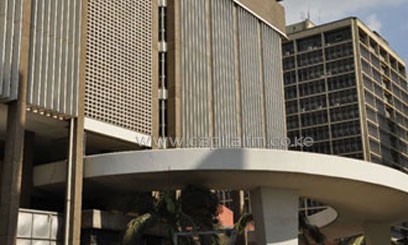
The overall interest rate spread in 2012 hit 11.8 percent up from 11.3 percent in 2011/FILE
According to accounting and consultancy firm, RSM Ashvir, the government has allowed banks to focus more on investing in Treasury Bills and Bonds, leaving smaller room for the banks to invest on giving more loans to customers.
Interest rate spread is the interest rate charged by banks on loans to private sector customers minus the interest rate paid by commercial or similar banks for savings deposits.
The overall interest rate spread in 2012 hit 11.8 percent up from 11.3 percent in 2011.
RSM Ashvir CEO Ashif Kassam says the spread is too wide compared to other countries adding that the Kenyan borrower continues to carry the heavy burden of high interest rates with less income from the savings deposit rate.
He insists on the need for the government to restrict Treasury Bills and Bonds taken by the banks and other lending institutions to 25 percent, to allow the other amounts to be given to other borrowers and at a lower lending rate.
Treasury Bills and Bonds sold through the Central Bank of Kenya have for a long time been used as an investment tool by banks due to attractive interest rates paid by the government.
“The only way you can encourage lending to the private sector is by reducing the government taking these huge amounts and try to restrict Bonds and Treasury Bills taken by the banks. This would leave more than Sh250 billion to be given to Kenyans as credit,” he argued.
He says banks have also been reluctant in factoring in the increasing low credit risks from private borrowers.
Efforts by the CBK in the past to have commercial banks slash their lending rate have been met with reluctance despite the fact that there had been a significant reduction of risks to their business.
“Despite the low credit risk, which has consistently decreased from 7.9 percent in 2009 to 4.6 percent in 2012, the interest rate spread has continued to remain high, reflecting the inherent political and economic risk that continues to be factored in pricing credit,” Kassam said while releasing the Kenya Banking Sector Performance in 2012 on Monday.
Last year, the sector made a total of Sh107 billion pre-tax profits up from Sh89.5 billion in 2011.
Total net interest income increased by Sh32 billion attributed to high and volatile rates that prevailed in 2012 during which Central Bank Rate moved from 18 percent in January 2012 to 11 percent in December.
Customer base in the sector grew from Sh1.4 billion to Sh1.7 billion, a 14.8 percent increase.
And despite banks spending much on employment costs which grew 13.6percent, efficiency in the sector decreased from 1.54 points to 1.43 in 2012.
Meanwhile Citi Bank has been named the best performing bank in the country out of the 43 banks that were assessed followed by Equity Bank.



































